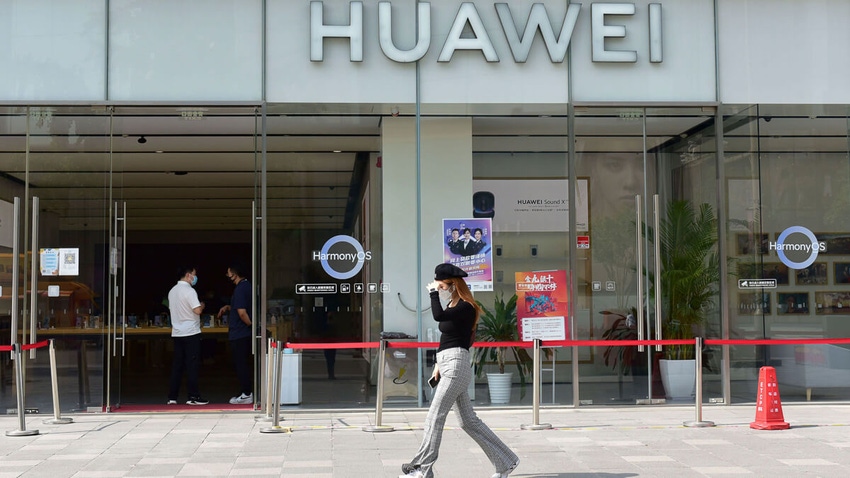Huawei equipment may be stuck in some US networks indefinitely
The FCC granted deadline extensions to the likes of Viaero Wireless, Mediacom, All Points Broadband and WorldCell in part because Congress has not coughed up the additional $3 billion 'rip and replace' program participants have been asking for.

The FCC is giving some of the US companies in its "rip and replace" program more time to tear Huawei and ZTE equipment out of their networks.
Importantly, the agency agreed to delay some deadlines due to the roughly $3 billion funding gap that Congress appears unwilling to fill.
"As a small, rural operation, we lack the financial resources to complete the project, as Congress has provided only 40% of the funds needed," Viaero Wireless wrote to the agency last month. "Congress maintains that replacing the covered communications equipment is essential to national security; it therefore must fully fund the Reimbursement Program. Without additional government funding, Viaero Wireless simply cannot complete the removal, replacement and disposal project; Congress' inaction and the lack of funding is completely outside of our control."
Continued the company: "With no assurances of additional funding from Congress, we respectfully request the Commission to find that our ability to complete the permanent removal, replacement and disposal by the end of the term is due to no fault of Viaero Wireless. Accordingly, we request a six-month extension of the one-year completion deadline."
The request from Viaero is important because the company is asking for just over $1 billion from the FCC to tear equipment from China's Huawei out of its network and replace it with equipment from Sweden's Ericsson. Of the almost 200 companies participating in the program, Viaero's "rip and replace" price tag is the highest.
In a new filing, the FCC said it would grant Viaero's request for a deadline extension. "The lack of full funding has rendered it unable to take necessary actions towards the completion of its respective removal, replacement and disposal processes," the agency wrote.
Thus, the situation sets up the possibility that "rip and replace" companies can continue to ask for delays until Congress decides to pump more money into the program. It's unclear whether that will happen given the leadership debacle in the House and a looming presidential election.
Counting beans
The FCC's "rip and replace" program stems from the Secure and Trusted Communications Networks Act of 2019, which built on years of fears among US policymakers that telecom equipment from Chinese companies could be used by Chinese spies to peek into US communications. The act required some US companies – including a number of smaller wireless network operators like Viaero – to tear out suspect equipment from their networks.
The legislation charged the FCC with administering the effort. Initial estimates pegged the total cost of the program at $700 million, but that quickly ballooned to around $1.9 billion. That was the amount Congress set aside for the effort. But last year, the FCC said it recalculated the cost of the program and arrived at a new grand total: $4.6 billion.
Since then, FCC officials and the companies in the program have been urging Congress to bridge that funding gap. Among their strategies: Warning that Huawei gear "could capture sensitive information from military bases and missile silos."
But so far Congress hasn't managed to address the situation. Indeed, it barely managed to avoid a government shutdown. Meanwhile, the Biden administration is moving forward with more than $60 billion in government subsidies for telecom services and networks in rural areas.
Excuses and excuses
Amid the "rip and replace" funding shortfall, some companies in the program have begun asking for more time. Reasons span the gamut.
"These equipment delivery delays have significantly impacted the original MCC timeline for completion of removal, replacement and disposal of its installed Huawei covered equipment," Mediacom wrote in August. "Obviously, equipment cannot be removed, services activated, subscribers migrated, and covered equipment disposed of until the replacement equipment is available."
"Due to equipment availability and workforces shortage due to Covid our removal and replacement schedule has been delayed," All Points Broadband wrote. "The replacement program had originally been expected to be completed as of this date but we are only 20 percent complete."
And James Valley Telecommunications (JVT) – once a Huawei proponent – had plenty to say on the topic:
"James Valley also must replace and destroy approximately 100 customer premise modems, which require an individual appointment with each customer to remove the Huawei modem from the customer premise and replace it with an approved modem. The Huawei modems then need to be destroyed. Given summer vacation schedules and getting children back to school for many customers, it has been increasingly difficult for James Valley to set these critical appointments to remove, replace and destroy the customer premise modems. James Valley only has a limited number of technicians on staff to perform this work – technicians that also have a myriad of other responsibilities both to keep the network operational and to add new locations and customers to the network as part of other FCC and federal government build out deadlines," the company wrote. "Two months is simply not enough time to complete the remaining removal, replacement and destruction work."
The FCC cited a range of reasons – from COVID-19 to supply chain troubles – in granting deadline extensions to JVT, Viaero, Mediacom, All Points Broadband (operating under the name "Virginia Everywhere") and WorldCell.
Notably, JVT also hinted at ongoing federal interest in the prospect of Chinese spies in its Huawei equipment: "James Valley has also experienced delays in destroying its covered equipment related to a request by a federal agency to examine its Huawei core," the company wrote.
It did not provide any further information.
About the Author(s)
You May Also Like












